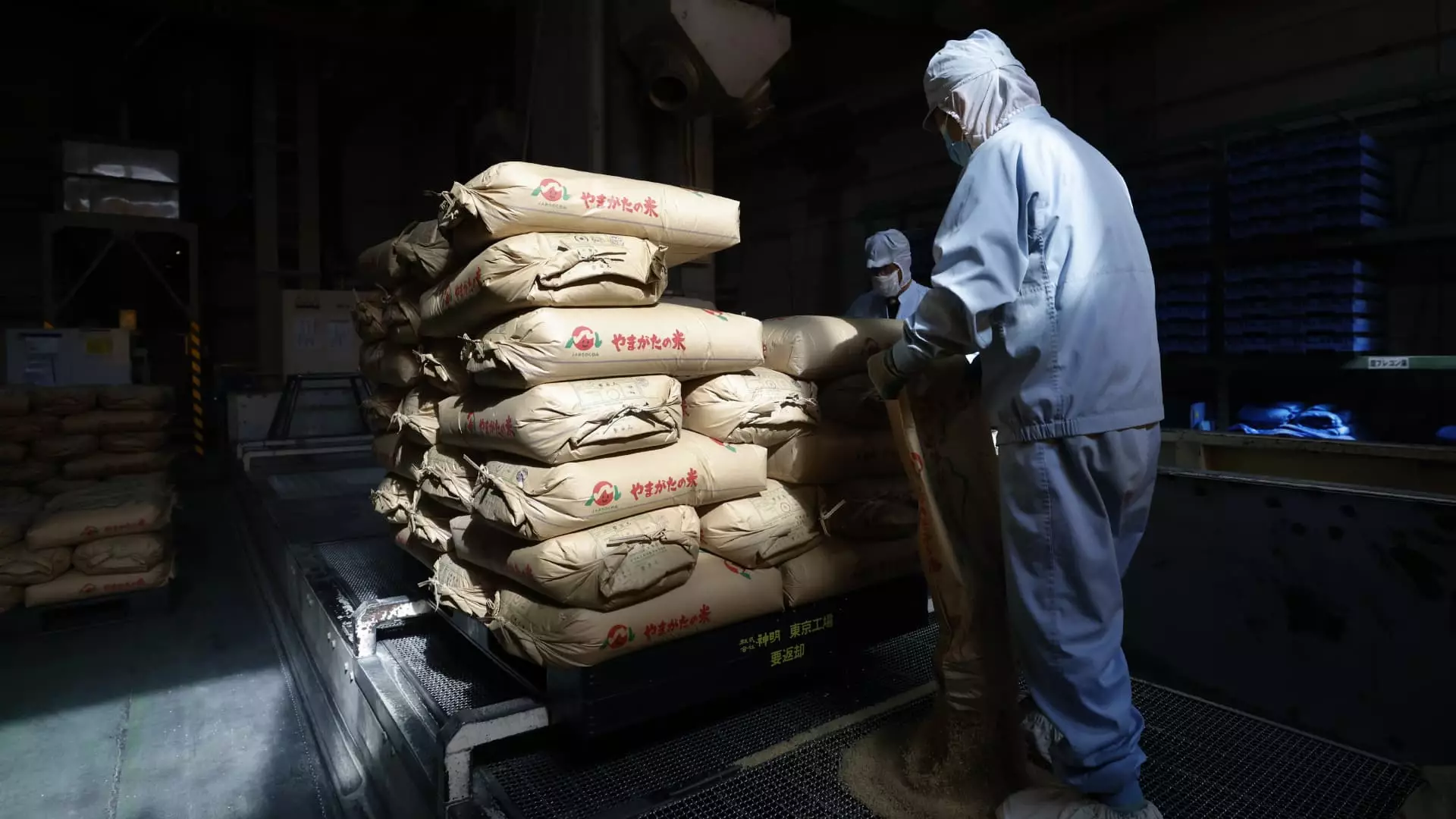Japan, a nation synonymous with rice consumption, is grappling with staggering price increases that have sent shockwaves throughout its economy. In May, rice prices surged an astounding 101.7% year-over-year, marking the largest increase in over fifty years. This trend, originating from a previous 98.4% spike in April and a 92.1% rise in March, paints a dire picture for consumers who rely heavily on this staple. Such drastic price movements are not simply a reflection of market fluctuations; they represent a larger crisis in food security and economic stability.
Rice has long been the backbone of the Japanese diet. Yet, as costs soar, the implications extend far beyond the dinner table. The Japanese government, evidently alarmed, has resorted to releasing emergency stockpiles in a bid to alleviate the pressure on household budgets. This decision underscores an urgent need for intervention in the face of soaring food prices, sparking debates about food autonomy and economic resilience in an increasingly globalized market.
The Broader Impact on Inflation
What does a staggering increase in rice prices mean for a nation where the core inflation rate has now reached 3.7%, the highest since the start of 2023? This figure surpasses the already high expectations of 3.6% among economists, indicating that Japan is battling inflationary forces that are far from benign. As inflation persists above the Bank of Japan’s (BOJ) target of 2%, it raises critical questions about economic policy and the efficacy of traditional monetary instruments.
Inflation is often perceived as a mere economic indicator, but in societies like Japan, it threatens the very fabric of daily life. A large segment of the population is faced with eroding purchasing power, making essentials like food increasingly unaffordable. Furthermore, Marcella Chow from JP Morgan Asset Management underscores that rice constitutes about 50% of Japan’s core inflation, suggesting that fluctuations in food prices could dictate broader economic trends. If the government manages to reduce rice prices, we may see a boost in household consumption—a critical driver for the Japanese economy—especially if these reductions trickle down to processed food items and dining establishments.
The Influence of Geopolitics and Economic Policy
The implications of rising rice prices are interwoven with global events as well. Rising geopolitical tensions, particularly in the Middle East, pose an additional risk by potentially driving energy prices higher. Economic sanctuaries such as Japan, which has historically maintained stability through robust policy frameworks, now find themselves vulnerable to external shocks. As inflation takes root, there’s a growing call for the BOJ to rethink its strategy on interest rates. Currently at a low 0.5%, the sustained economic pressures may necessitate more aggressive monetary interventions.
BOJ Governor Kazuo Ueda has voiced careful optimism about future rate adjustments, yet the bank remains committed to a cautious approach while it gauges whether inflation will settle around the 2% mark. What this strategy fails to account for is the everyday reality faced by ordinary citizens—the increased cost of living amidst stagnant wages can create a volatile socio-economic climate. When prices of essentials rise at an alarming rate, the anger among residents may catalyze demands for political accountability in addressing food security and inflation.
Looking Ahead: A Deceleration in Price Pressures?
Some experts, like portfolio manager Kei Okamura from Neuberger Berman, suggest that we might see a tapering of food price pressures in the months to come. While optimism is a welcome counterpoint to grim forecasts, it is crucial to recognize the tumultuous journey ahead. The fragile economy, which recently recorded a 0.2% contraction in GDP in the first quarter, hints at underlying weaknesses that could hinder recovery.
The future of Japan’s economy isn’t just about managing inflation; it’s about reexamining how food systems operate in the context of global markets. Rising rice prices could become a cultural and political catalyst, urging Japan to rethink its food production, distribution, and consumption practices. It’s a call for introspection—not just economically, but also socially—as the nation navigates an increasingly complex landscape of food security and consumer rights.


Leave a Reply